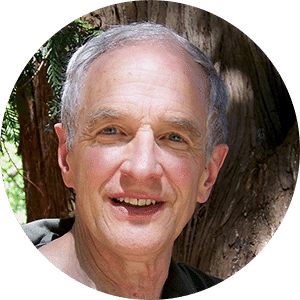Day Twenty-two
DAY 22: AN INTERVIEW WITH Rodney Smith
Advanced mindfulness and new perspectives on the self
LISTEN TO INTERVIEW AUDIO ONLY BELOW
[accessally_missing_any_tag tag_id='360' comment='MLP_Base_Access']
[/accessally_missing_any_tag]
[accessally_has_any_tag tag_id='360' comment='MLP_Base_Access']
Mind Life Project Bonus Content:
Download your Transcript here.
[/accessally_has_any_tag]
Lovingkindness Meditation
by Elise Bialylew
*click play to listen to the meditation
In this video you’ll learn:
- How mindfulness can change the relationship we have with our thoughts
- Understanding the principle of "letting go" when practising mindfulness
- How to manage the obstacle of boredom in meditation practice to experience greater benefits and freedom in life
- The two different realities of form and formless and how to understanding this can reduce our suffering
- How learning to stay with the unpleasant in meditation builds greater resilience in life
The lovingkindness meditation
The lovingkindness meditation, traditionally called the Metta practice, is a simple but profoundly powerful one. It not only helps us develop compassion in our lives, but also acts as an antidote to the negative feelings we can experience towards ourselves or others.
In an interview with Sharon Salzberg, one of the world’s leading insight meditation teachers, she explains:
Sometimes lovingkindness is described as extending friendship to ourselves and others. I think of it as a type of self therapy, where we don’t just develop self acceptance, but we also develop the skills to alchemise negative feelings towards others into compassion.
Lovingkindness is a form of love that is an ability, and, as research scientists have shown, it can be learned. It is the ability to look at ourselves and others with kindness instead of reflexive criticism; to include in our concern those to whom we normally pay no attention; to care for ourselves unconditionally instead of thinking, ‘I will love myself as long as I never make a mistake.’ It is the ability to gather our attention and really listen to others, even those we’ve written off as not worth our time. It is the ability to see the humanity in people we don’t know and the pain in people we find difficult.
If you’re new to the lovingkindness meditation bring an open mind and heart to the meditation today and don’t get caught up in the words, but rather the intention and spirit of the practice. The benefits of this practice can unexpectedly arise in your daily life, so stick with it and practice it throughout the week alongside the other meditations. You can also change the words so that they suit you more and feel more resonant and meaningful. Make it your own.
It felt awkward and forced for me initially, but it has become a practice that nourishes me especially when I’m feeling depleted or despairing about the state of the world and the immense suffering that exists within it. The practice is an opportunity to pause and consciously bring kindness and compassion to ourselves and others. It’s a beautiful way of reminding ourselves of the truth of our interdependence and interconnectedness. Through the practice, we connect with the universal desire for happiness and our shared vulnerability in the face of constant change.
For more guidance around the lovingkindness practice read The Happiness Plan, Chapter 4.
Be Mindful after May
Continue your mindfulness journey for 6-months with guidance from Elise and extend your access to the Mindful in May program. Register before June 1st and save ~ $200.
stay on track
[progressally_objectives]
[progressally_progress_pie_chart size="80"]

DONATE HERE
If you'd like to make a donation and be part of this impact you can still do so right here - every $50 will bring clean water to one person for life!

SPONSOR A FRIEND OR SHARE YOUR PAGE TO FUNDRAISE
If you'd like to contribute and sponsor to a fellow MIMster you can find the fundraising teams here.

 Rodney Smith is the retired founding and guiding teacher of the Seattle Insight Meditation Society. A former Buddhist monk and hospice director, he has taught meditation for over 30 years and is the author of Lessons from the Dying; Stepping Out of Self-Deception: The Buddha’s Liberating Teaching of No-Self; Awakening: A Paradigm Shift of the Heart; and Touching the Infinite: A New Perspective on the Buddha’s Four Foundations of Mindfulness (Oct 2017).
Rodney Smith is the retired founding and guiding teacher of the Seattle Insight Meditation Society. A former Buddhist monk and hospice director, he has taught meditation for over 30 years and is the author of Lessons from the Dying; Stepping Out of Self-Deception: The Buddha’s Liberating Teaching of No-Self; Awakening: A Paradigm Shift of the Heart; and Touching the Infinite: A New Perspective on the Buddha’s Four Foundations of Mindfulness (Oct 2017).

